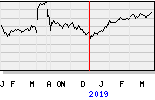
Copenhagen, Denmark – Royal Philips Electronics (NYSE: PHG, AEX: PHI) is to call upon mayors and municipal leaders to accelerate sustainability in infrastructure projects and building renovation, as part of the effort to combat climate change.
With the United Nations Climate Change Conference taking place in Copenhagen – attended by national and civic leaders from all over the world - Philips believes that the opportunity exists for a robust and comprehensive follow-up agreement to the Kyoto Treaty, with existing technology solutions offering an achievable path to reducing harmful emissions.
Earlier this year at the UN climate conference in New York, Gerard Kleisterlee, CEO of Royal Philips Electronics, said: “These are challenging times for business in general. If an ambitious and effective global climate change program can be agreed, it will create the conditions for transformational change of our world economy and deliver the signals that companies need to speed up investment of billions of dollars in energy efficient products, services, technologies and infrastructure such as LED lighting technology.” Philips put weight behind this appeal by partnering with the World Green Building Council (WorldGBC), committing to improving the energy efficiency of cities by 40% in the next 10 years.
More than half of the world’s population now live in cities and are responsible for 70% of global energy consumption. Up to 50% of municipal energy spending goes to lighting: making buildings alone energy efficient could save more carbon dioxide than the entire emissions of the transport sector. At the same time, the cost of energy efficiency measures is usually greatly overestimated.*
Philips argues that the current rate of renovation of existing infrastructure, based on inefficient 1960s technology or even older, is much too slow. For office lighting, for example, it is only about 6-7% per year. In city lighting, it is just 3%.
“At this pace, it will take 30 years before the environmental, economical and quality-of-life benefits of the latest technologies can be reaped,” says Marc de Jong, CEO, Professional Luminaires, Philips Lighting. “Business can deliver technologies and financial solutions as well as improve awareness. Efficient technologies for all segments exist today, but the one thing we can't afford is delay their implementation.”
* See WBCSD report on energy efficient buildings: http://www.wbcsd.org/web/eeb/Energyefficiencyinbuilding.pdf
